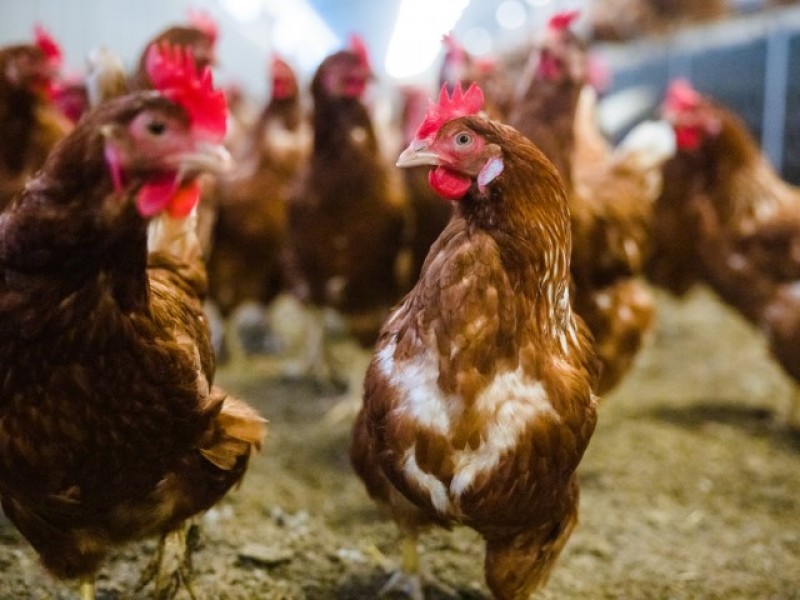House fly
Musca domestica

In poultry farms, houseflies severely reduce the egg production. They also affect milk production on dairy farms.
House fly

Life cycle
The housefly has four life stages including egg, larva pupa and adult. Once mated, female flies lay their eggs in organic waste or in faeces of animals. Larvae will hatch from the eggs after a few hours (around 8-16h) after being laid and develop rapidly. The larvae will migrate to a drier place for pupation where the transformation from larva to adult fly will take place. It usually takes between 2-10 days before the adult emerges. A few days after emergence, the female flies will be ready for reproduction. They lay eggs no more than five times during their life time and will lay around 120-130 eggs at any one time. Adult flies normally live between 15-25 days.

Identification
Egg: about 1.2 mm in length, banana-shaped, white to cream colour eggs and are laid in clusters.
Larva: 3 to 9 mm long, slender, white, legless maggots.
Pupa: 8 mm long, vary in colour from light yellow, orange, light brown and dark brown as they grow older.
Adult fly: 6–9mm long, reddish-eyes and sponging mouthparts, four dark stripes running lengthwise on their back.

Natural habitat and behavior
Houseflies feed and reproduce on a variety of human foods, garbage and waste. They reproduce in the decayed, fermenting or rotting organic material and animal faeces, but rarely on meat or carrion.
Houseflies have special mouth structures that only allow them to consume soluble food. They use their saliva to wet and dissolve the solid food before ingestion. During the day when not feeding and during the night, houseflies will rest on the surface of walls, ceilings, garbage cans and grass in both indoor and outdoor places. They usually stay above ground but rarely higher than 5 meters.
Nuisance/
economical damage
As vectors, houseflies carry more than 100 pathogens including various food-borne pathogens causing food spoilage. They transmit more than 65 human and animal intestinal diseases, eye disease and can infect wounds and skin. The presence of a high population of houseflies disturbs people during work and give a negative psychological impact as indicates unhygienic conditions. In poultry farms, houseflies severely reduce the egg production and in dairy farms they can have a negative impact on milk production.


Get in touch
A successful approach to biological fly control isbased on strategically planned releases.
Pleasecontact us to discuss the possibilities.

Rob and Hannah Collins
Worcestershire
“Biowasp fly parasites
are the backbone of our
integrated fly control
management plan”.

